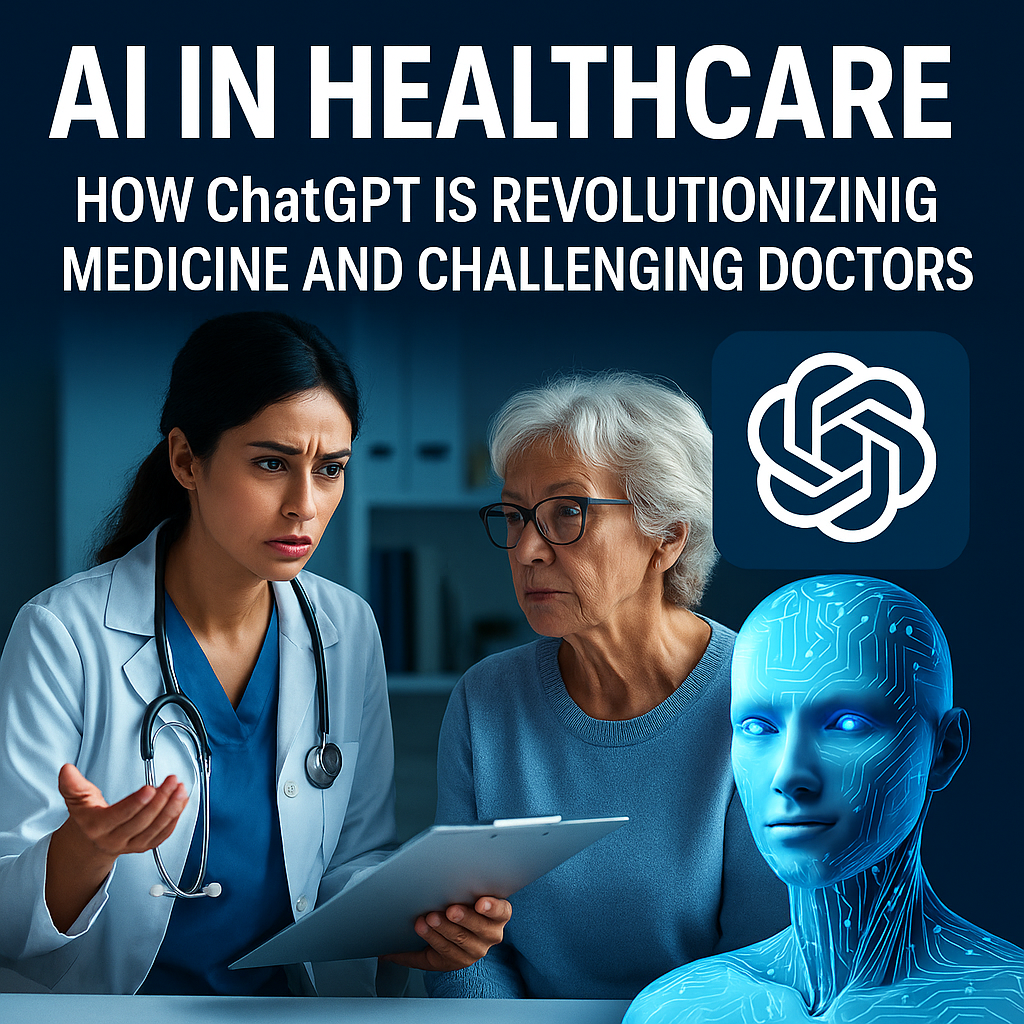AI in Healthcare is no longer a futuristic concept it’s here, it’s powerful, and it’s reshaping the way patients interact with doctors. A recent story about a cancer survivor crediting OpenAI’s ChatGPT for helping her fight her illness has brought global attention to the role of artificial intelligence in medicine.
Elon Musk, who has often warned about AI’s rapid growth, surprised many by advocating for the technology. “AI is already better than most doctors. That’s the honest truth. And it will become far better,” Musk said, adding that AI will surpass human capability in many professions, including his own.

AI in Healthcare and Patient Empowerment
The cancer survivor’s testimony revealed how ChatGPT helped her advocate for herself, challenge her doctor’s opinions, and make informed treatment decisions. This case exemplifies how AI in Healthcare is empowering patients with unprecedented access to medical knowledge.
Instead of passively accepting medical advice, patients are arriving at consultations armed with detailed information, sometimes putting doctors “on the hot seat.”
Doctors Respond to the AI Challenge
According to Dr. Park, a practicing physician active on TikTok (@drpark524), AI is forcing a shift in the medical profession. “Patients are coming in with very, very difficult questions… They’re using AI chatbots to get a lot of base information that they would normally get from their doctor,” he said.
One patient, for example, cited the precise incidence rate of retinal detachment in the United States an uncommon statistic challenging the physician’s expertise during a consultation. This is a direct result of AI in Healthcare tools providing rapid, accurate data to everyday users.
Industry Leaders See Collaboration, Not Replacement
While some doctors fear AI will replace them, experts like Google DeepMind CEO Demis Hassabis believe that AI in Healthcare will enhance, not erase, the human role. Hassabis explains that AI will handle complex, data-heavy diagnostic work, allowing human professionals to focus on tasks requiring empathy, creativity, and emotional intelligence.
This means that while diagnostic radiology or pathology might lean heavily on AI, professions like nursing, counseling, and palliative care will remain inherently human.
The Future of AI in Healthcare
The integration of AI into medicine is just beginning. With tools like ChatGPT becoming smarter and more context-aware, AI in Healthcare could drastically improve treatment accuracy, reduce diagnostic errors, and shorten the time to critical interventions.
However, this evolution will require physicians to adapt embracing AI as a partner rather than a competitor. Those who learn to combine medical expertise with AI-powered analytics will likely lead the next era of patient care.